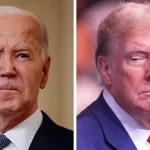After a years-long legal saga, Wikileaks says that founder Julian Assange has left the UK after reaching a deal with US authorities that will see him plead guilty to criminal charges and go free.
Assange, 52, was charged with conspiracy to obtain and disclose national defence information.
For years, the US has argued that the Wikileaks files – which disclosed information about the Iraq and Afghanistan wars – endangered lives.
Assange spent the last five years in a British prison, from where he was fighting extradition to the US.
According to CBS, the BBC’s US partner, Assange will spend no time in US custody and will receive credit for the time spent incarcerated in the UK.
Assange will return to Australia, according to a letter from the justice department.
On X, the platform formerly known as Twitter, Wikileaks said that Assange left Belmarsh prison on Monday after 1,901 days in a small cell.
He was then “released at Stansted airport during the afternoon, where he boarded a plane and departed the UK” to return to Australia, the statement added.
Video shared online by Wikileaks appear to show Assange, dressed in jeans and a blue shirt, being driven to Stansted before boarding an aircraft.
His wife, Stella Assange, tweeted thanks to his supporters “who have all mobilised for years and years to make this come true”.
The deal – which will see him plead guilty to one charge – is expected to be finalised in a court in the Northern Mariana Islands on Wednesday, 26 June.
The remote Pacific islands, a US commonwealth, are much closer to Australia than US federal courts in Hawaii or the continental US.
Agence France Press quoted a spokesperson for Australia’s government as saying that the case had “dragged on for too long”.
His attorney, Richard Miller, declined to comment when contacted by CBS. The BBC has also contacted his US-based lawyer.
He and his lawyers had long claimed that the case against him was politically motivated.
In April, US President Joe Biden said that he was considering a request from Australia to drop the prosecution against Assange.
In a victory the following month, the UK High Court ruled that Assange could bring a new appeal against extradition to the US, allowing him to challenge US assurances over how his prospective trial would be conducted and whether his right to free speech would be infringed.
After the ruling, his wife Stella told reporters and supporters that the Biden administration “should distance itself from this shameful prosecution”.
US prosecutors had originally wanted to try the Wikileaks founder on 18 counts – mostly under the Espionage Act – over the release of confidential US military records and diplomatic messages related to the wars in Afghanistan and Iraq.
Wikileaks, which Assange founded in 2006, claims to have published over 10 million documents in what the US government later described as “one of the largest compromises of classified information in the history of the United States”.
In 2010, the website published a video from a US military helicopter which showed more than a dozen Iraqi civilians, including two Reuters news reporters, being killed in Baghdad.
One of Assange’s most well-known collaborators, US Army intelligence analyst Chelsea Manning, was sentenced to 35 years in prison before then-president Barack Obama commuted her sentence in 2017.
Assange also faced separate charges of rape and sexual assault in Sweden, which he denied.
He spent seven years hiding in Ecuador’s London embassy, claiming the Swedish case would lead him to be sent to the US.
Swedish authorities dropped the case in 2019 and said that too much time had passed since the original complaint, but UK authorities later took him into custody. He was tried for not surrendering to the courts to be extradited to Sweden.
Even amid long-running legal battles, Assange has rarely been seen in public and for years has reportedly suffered from poor health, including a small stroke in prison in 2021.





